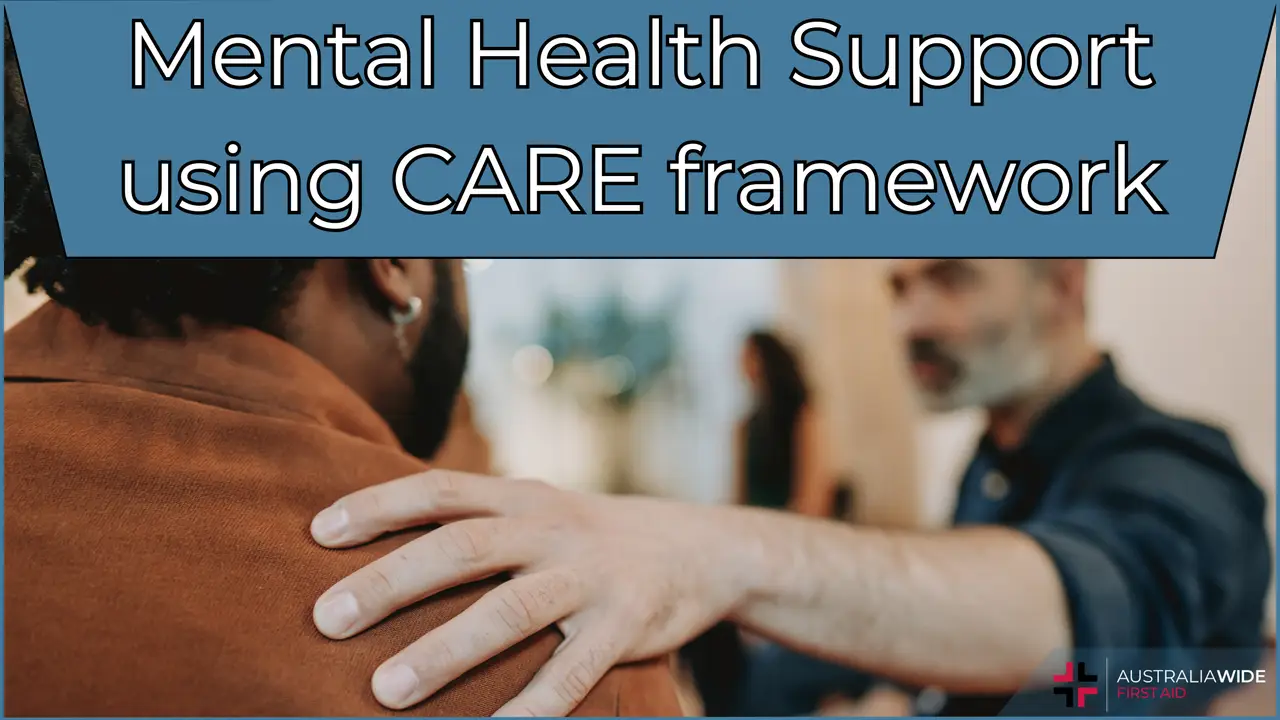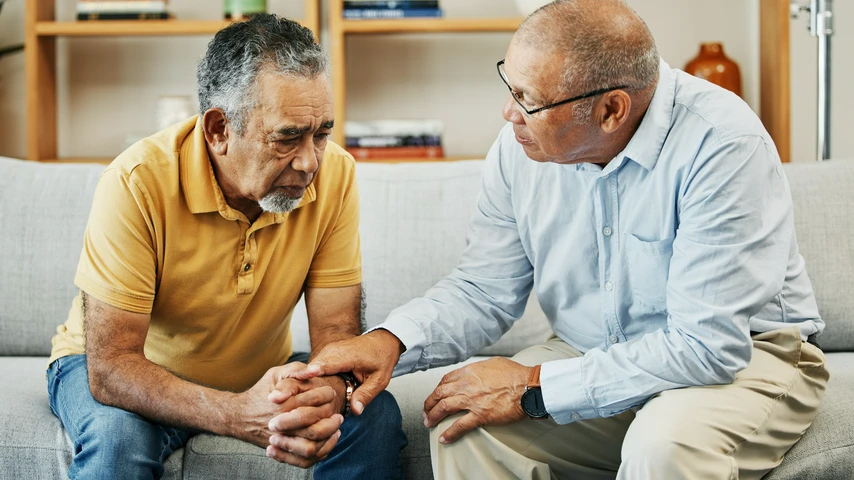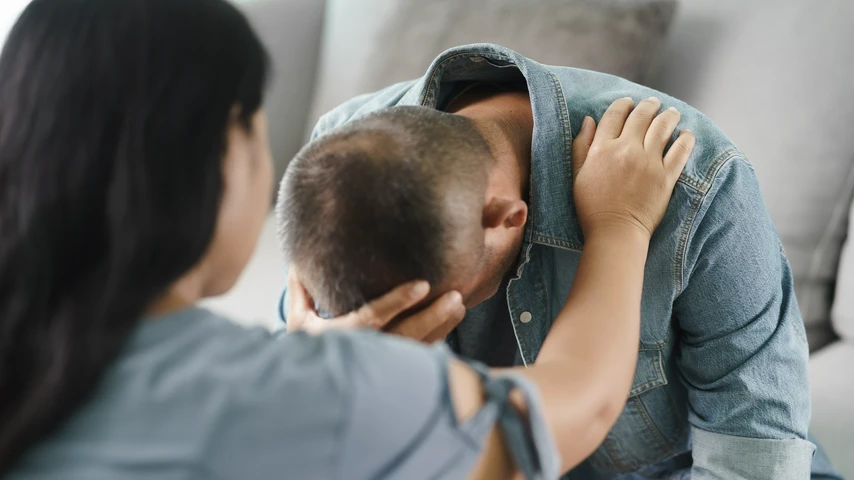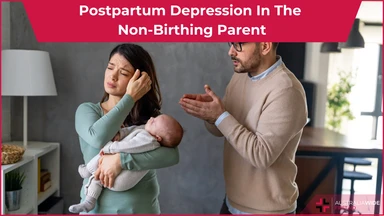Providing Mental Health Support Using the CARE Framework


Mental health crises can occur unexpectedly, and knowing how to respond effectively can make a significant difference.
The CARE framework is an easy-to-remember guide for offering support during a mental health crisis. It is also applicable if you think you might be seeing signs and symptoms of low mental health in a loved one, friend, or colleague. The process remains the same regardless of the severity of the situation.

The first step is to evaluate the situation and recognise any signs of mental health distress or crisis.
Look for changes in behaviour, mood, or energy levels. Some key indicators may include extreme sadness, withdrawal from friends and activities, changes in sleeping or eating habits, irritability, or sudden mood swings.
Consider whether the person is at risk of self-harm, suicide, or experiencing significant impacts on their personal life (e.g., relationships, work, or school).
Some warning signs include:
If there is an imminent risk of harm (to themselves or others), call 000 immediately for emergency assistance.

Once you have determined the person is in distress but not in immediate danger, provide compassionate initial assistance and support.
Start by asking how they are feeling. Use open-ended questions like, “How have you been feeling lately?” or “Is there anything on your mind that you'd like to talk about?”
Allow the person to express their thoughts and emotions without interrupting or offering solutions right away. Active listening involves empathy, maintaining eye contact, and refraining from criticism.
Offer basic information about mental health. You might explain that anxiety, depression, or other mental health disorders are common and treatable, and that seeking help is a positive step forward. Avoid diagnosing or giving unsolicited opinions—focus on supporting them.

Mental health crises often require more than first aid. Encourage the individual to seek professional help, even if they are not in immediate danger and even if the situation seems not that significant.
You can suggest that the person reach out to a mental health professional such as a psychologist, psychiatrist, or counsellor. You may also refer them to helplines like Lifeline or Beyond Blue, which offer immediate support.
If necessary, help the person research therapists or services and assist them with practical steps like scheduling appointments or attending with them if they are anxious.
Offer suggestions, but ensure the person feels in control of their own decisions. It's important to respect their autonomy and avoid being overly forceful, as this can cause them to retreat further.

Offering support doesn't stop after the initial conversation. Continue to check in and ensure the person feels cared for.
Reach out to see how they are doing, whether via text, phone calls, or meeting in person. These small gestures can provide immense emotional support.
Mental health recovery takes time. Regular conversations about their well-being can help them feel less isolated and remind them that you care.
Supporting someone in a mental health crisis can be emotionally draining. It’s important to take care of your own mental health. Set boundaries if necessary, and don’t hesitate to step back if you feel overwhelmed. Prioritise your well-being to continue offering effective support.
Education really is the key to a society that honours mental health. Without proper education, misconceptions and stigmas can impact how mental health is viewed, and stop people from getting the help they need. Reading this article is the perfect first step!
Mental health is just as integral to your wellbeing as physical health. Knowing how to recognise the signs and symptoms of mental ill-health early can ensure that people get timely help. This intervention can prevent mental health crises, which can be life-threatening events.
Completing a Mental Health Support Course gives you the knowledge and tools to recognise when someone is struggling or in a crisis, and how to help. Our bespoke course will teach you how to recognise signs and symptoms of someone who may be suffering with their mental health, or already in a crisis. We will teach you how to apply what you have just read about the CARE framework, so you are confident putting it into action when the need arises.
If an in-person course doesn't suit you, we also offer a fully-online Mental Health Support course to give you the knowledge and tools you need to be able to assist someone who is experiencing poor mental health or is in a crisis. Completed from the comfort of your own home, earn your Certificate of Completion to give to your employer, put on your resume, or simply move forward with the knowledge that you can lend actual help to those who may need it.
By following the CARE method—Check and Consider, Ask and Assist, Refer, Encourage and Support—you can provide meaningful mental health first aid to someone in crisis. Your role is to offer immediate care and guide them toward the professional help they need, all while remembering to care of yourself as well.
Enrol in our Mental Health Support Course to take your skills and knowledge to the next level!

February 18, 2025
Mental health can be influenced by every aspect of our lives, and the weather is no exception. In places closer to the equator with humid environments, like Darwin here in Australia, the onset of monsoon season can see people suffer from a tropical seasonal affective disorder known as ‘mango madness’.

January 16, 2025
Mental health crises can occur unexpectedly, and knowing how to respond effectively can make a significant difference. The CARE framework is an easy-to-remember guide for offering support during a mental health crisis. It is also applicable if you think you might be seeing signs and symptoms of low mental health in a loved one, friend, or colleague.

June 3, 2024
New parents, both birthing and non-birthing, can develop postpartum depression. Birthing parents are easily recognized as being at risk for postpartum depression; however, it is important to acknowledge that non-birthing parents are equally susceptible to experiencing postpartum depression.